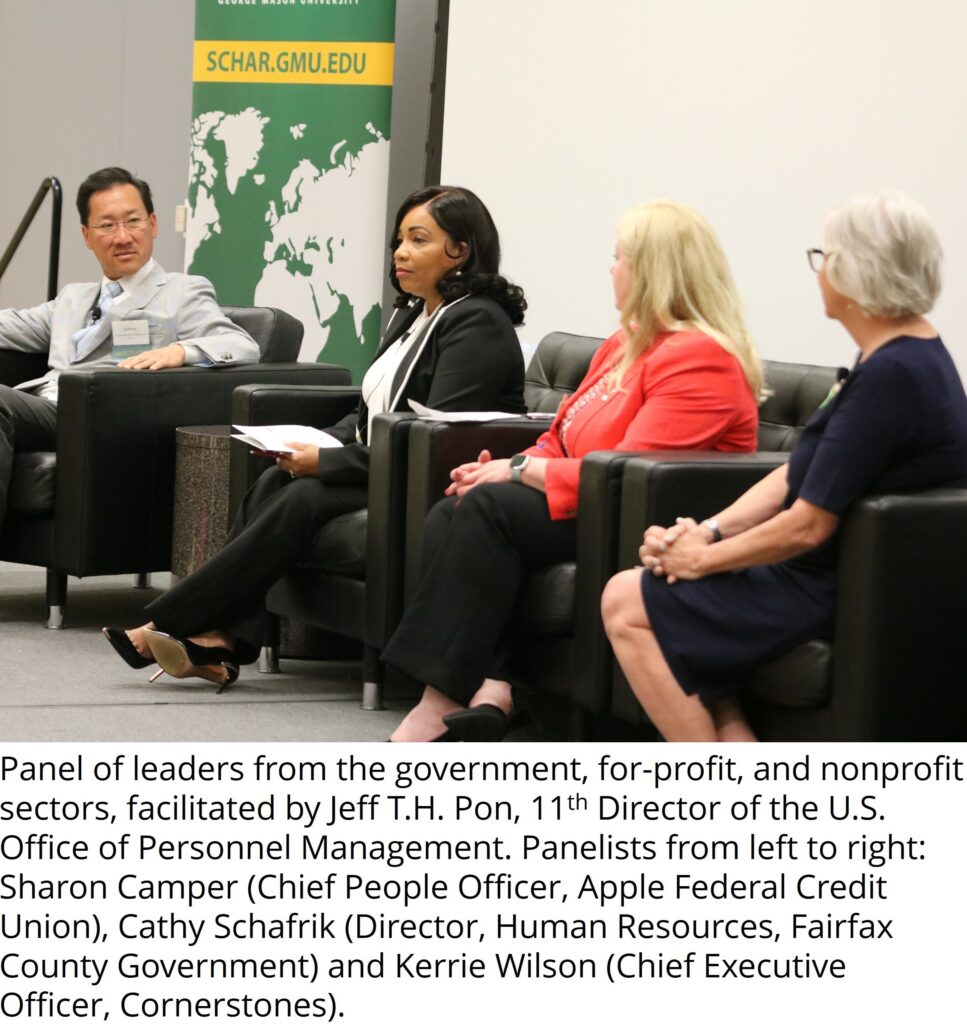On May 2, the 15th annual Community Partnership Forum brought together government, business, and nonprofit leaders from Northern Virginia and nearby areas to discuss the importance of workplace culture for hiring and maintaining a talented workforce and ensuring high organizational performance. The discussion was kicked off by Mark Schwartz, the County Manager for Arlington County, who described the ways the COVID-19 pandemic changed the nature of work for county employees and continues to present new challenges as the county seeks to find a balance between providing flexibility for its employees to work remotely while also giving them opportunities to feel connected.
Glenn Davidson and Emily Omrod from Deloitte Consulting LCC explained that Arlington County is not alone in seeking to strike this balance. In the first plenary session of the forum, they presented key workforce trends and action steps leaders can take to tackle the new challenges that are arising. Based on workforce surveys and data from across the globe, Davidson and Omrod indicated that workers are feeling exhausted and are resigning and moving locations at high rates. For example, they presented data from the U.S. Chamber of Commerce that showed that more than 3 million fewer Americans are participating in the labor force in May 2023 compared to February 2020. These trends show up in the difficulty many organizations have in attracting and maintaining employees. In this context, Davidson and Omrod advocated for humanizing work, which might involve helping employees develop their human skills (e.g., empathy, curiosity), and focusing on “micro-credentials” rather than full academic degrees as prerequisites for jobs where appropriate. To conclude their remarks, they also urged organizational leaders to actively build trust, create purpose for their employees, creatively orchestrate work environments, advocate for work-life balance, and facilitate connections.
Download Slides from the 2023 Community Partnership Forum Here:

The forum continued with a panel of leaders from the government, for-profit, and nonprofit sectors. Jeff T.H. Pon, 11th Director of the U.S. Office of Personnel Management, facilitated the discussion. He asked panelists about the approaches they used to build and maintain workplace culture as the COVID-19 pandemic changed the nature of work. As Sharon Camper (Chief People Officer, Apple Federal Credit Union), Kerrie Wilson (Chief Executive Officer, Cornerstones), and Cathy Schafrik (Director, Human Resources, Fairfax County Government) spoke about their experiences, it became clear that what works for one organization may not work for others. Yet, a common thread across sectors was the importance of listening to the needs of employees and meaningfully connecting the day-to-day work of employees to the mission or impact of the organization. Examples of specific strategies the panelists used in their organizations included: providing additional compensation to workers whose job requires in-person work; making sure technology is not an additional stressor but helpful; and investing time and resources in activities that employees enjoy and will provide opportunities for connection. The bottom line is that building culture takes intentionality, but having an energized, committed workforce makes culture-building worth the investment.
The closing keynote was presented by Olivia (Mandy) O’Neill, Associate Professor of Management in the School of Business at George Mason University. She focused on how organizations choose and communicate key values. She engaged the audience by showing several graphics about the organizational values of different companies and asked members of the forum audience how many of the same values (e.g., commitment, excellence, customer-focused, respect) appear in culture statements where they work. A count of raised hands indicated that many organizations, across sectors and with a broad range of goals, tend to use a limited set of terms to describe their culture. She then made the case that not all organizations can be all things, and by not being more strategic and focused in their choice of values, organizations make culture goals easy to ignore. O’Neill suggested that organizations should move to a greater focus on emotional culture, and urged leaders to take stock of how their employees feel and how the leaders want them to feel at work. For example, she explained that many people describe feeling stressed or anxious at work, and that it would help organizations to consider ways to help employees feel appreciated or experience awe. She concluded with several suggestions:
- Understand how employees view the strengths and weaknesses of their workplace and choose leaders who will cultivate cultures that build on strengths and will engage employees to collaborate in tackling weaknesses.
- Beware of unintentional consequences. High engagement and strong work relationships can be great for workplace culture but may also lead to burnout and inability to disconnect. Leaders should be aware of these possibilities and take steps to avoid them.
- Take stock of observable and unobservable indicators of culture, from facial expressions and jargon to the beliefs and assumptions held by employees about their work. These indicators can help leaders assess their organizational culture and lead to adjustments that build stronger workplaces.
In addition to the formal presentations, leaders from across the region had opportunities during the forum to network and deepen cross-sector relationships. Participants were also able to engage with sponsors and learn more about their work.
The Center on Nonprofits, Philanthropy, and Social Enterprise thanks all those who made this event possible, especially our co-hosts and sponsors!
Forum Hosts:

Forum Sponsors:

